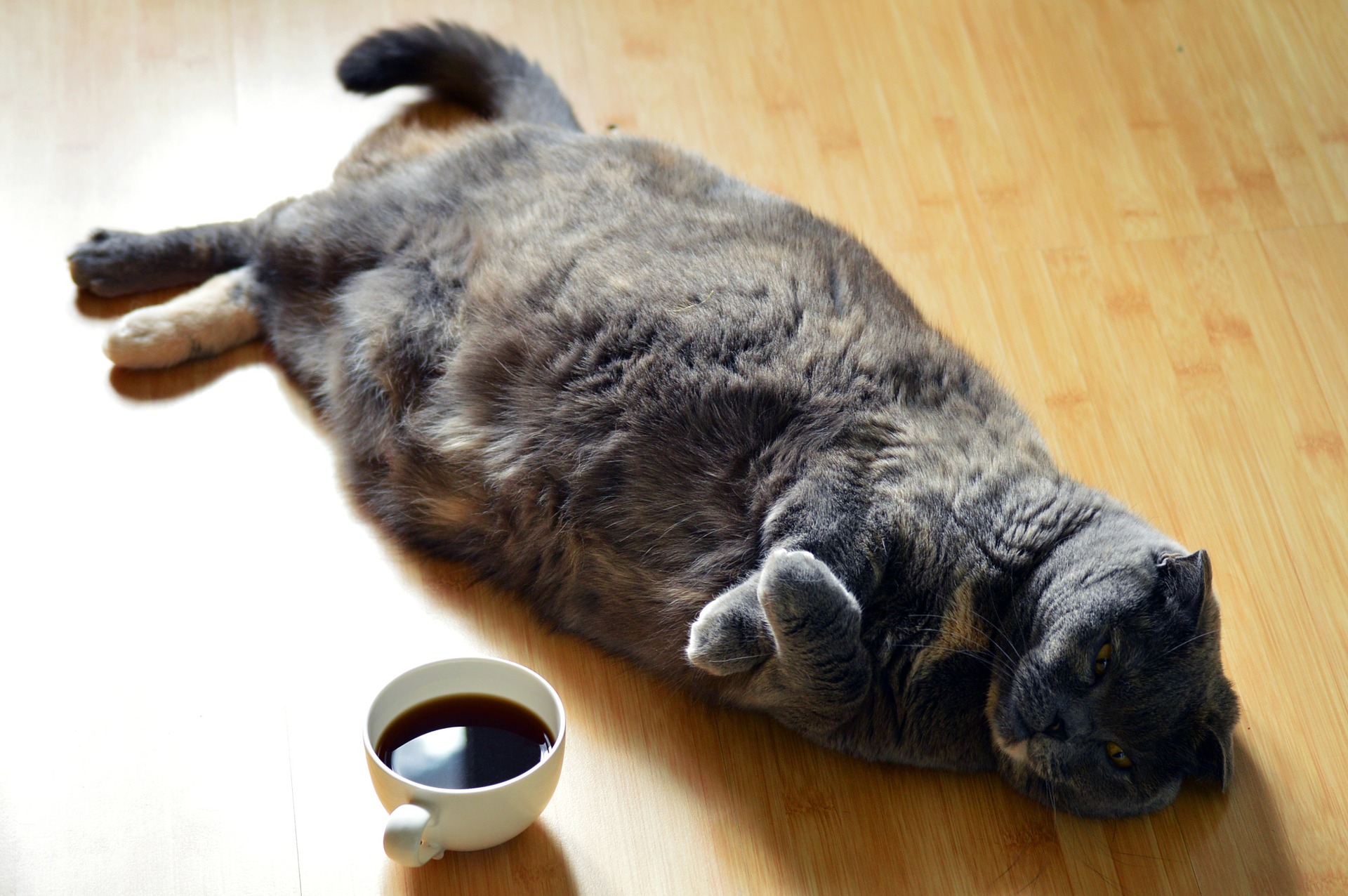
the scientific study of pet nutrition by veterinary nutrition specialists and experts.
Five Ways Being Overweight Can Harm Your Cat’s Health

With up to 63% of cats currently overweight, we now know about the problems that cats face when they are too heavy. If your cat is overweight, your cat is at risk for these common problems…
- Diabetes
Obesity is not only a risk factor for diabetes, but can make the diabetes more difficult to control. So, getting that extra weight off is an important part of treatment for overweight cats and, in some cases, it may even result in remission (i.e., your cat not needing insulin anymore!). Studies show even in young cats under a year of age, their sensitivity to insulin can be changed by obesity, so keeping cats nice and trim is important, even as young kittens!
- Urinary Disease
Obesity can also be a risk factor for feline lower urinary tract disease (FLUTD), and just like diabetes, getting that extra weight off is a mainstay of treatment, along with some specific diet modifications and stress management. Check out www.indoorpet.osu.edu for more information and ideas to encourage activity for indoor cats to both help keep your cat trim and reduce stress.
- Osteoarthritis
Compared to lean cats, overweight cats are almost five times as likely to develop lameness which required seeing a vet. The good news, though, that even getting 6-8% of weight loss in dogs showed improved pain and required less medication and we expect that weight loss has a similar benefit in cats.
- Conditions You Can’t See
It’s not just the extra weight on the joints that can cause a problem, but we now know fat tissue can be a source of constant inflammation throughout the body that can make cats lead to other diseases. You might not see these changes, but be aware that this fat, instead of just sitting there is putting out hormones that increase stress and inflammation in the body. The best time to fix this is before you even see any problems in your cat!
- Quality and Quantity of Life
Though we’re still waiting on lifetime studies in cats, we know that dogs who are trim live longer (2 years on average!) than their mildly overweight counterparts. These trim dogs also had reduced risk of some diseases or developed the diseases later in life. Cats may well see similar benefits!
Take Home Thoughts:
There are problems stemming from obesity that involve almost every system in the body. Even without signs you can see, obese cats have higher anesthesia risks, medical costs, and require special care in selecting the correct dose for medications. Excess weight is easier to prevent than treat, so keeping a lifelong healthy weight will help keeps cats healthier and happier. See tips for how to address this on our previous blog.
Want to read more information on feeding your pet?
Subscribe to always know when we add new material!
Recommended Posts

Can Diet Help With My Dog’s Seizures?
January 18, 2024

The Most Popular Holiday Foods…That Your Pet Should Avoid!
December 08, 2023

Veterinarian Recommended Pet Foods: What You Need to Know
November 05, 2023

